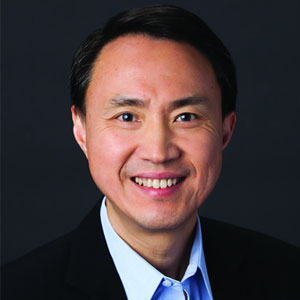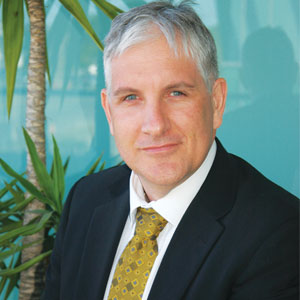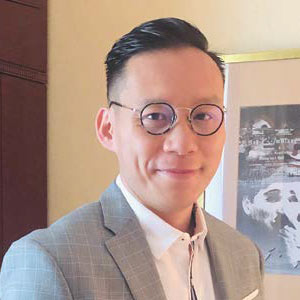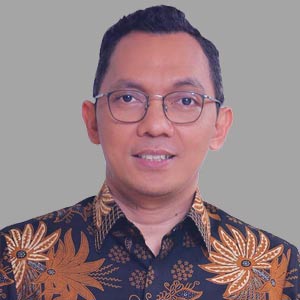THANK YOU FOR SUBSCRIBING

How Artificial Intelligence is Redefining Healthcare and its Challenges
Gaurav Rekhi, Managing Director and CEO, Manipal Hospitals, Malaysia

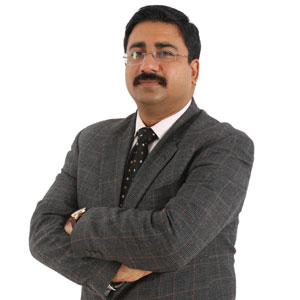
Gaurav Rekhi, Managing Director and CEO, Manipal Hospitals, Malaysia
Our lives are getting more and more dependent on virtual platforms and in this era, information flows to us for anything to everything just with a click. Even our day-to-day decisions like buying products to getting friends with are being impacted by these platforms. While these changes were accepted in our ecosystem, we didn’t realize that we are having entry of another disruption which is IoT (Internet of things) and AI (Artificial Intelligence)
In recent times big data, AI, IoT are on path breaking progress and healthcare is also feeling disruption because of all. But if you see in long term AI and IoT can offer healthcare to be smarter, efficient and cost effective. Just to fill you with numbers, in coming years connected devices are expected to be more than 50 billion by 2020, out of which 30% are expected to be in healthcare.
Firstly, before going into AI in healthcare we need to understand why healthcare is unique in nature. And the answer is that any change in algorithms or the way things are done can impact human lives unlike other sectors. Health care works in controlled environment and government and their agencies have organized mechanisms to control any potential negative impact of untested and insecure usage of healthcare devices, medicines, and vaccines on public at large. Therefore, because of uniqueness in healthcare, it may move on slow pace but surely, it will happen as like other sectors. Healthcare is also feeling heat of ever-increasing costs and continuous improvement in delivering clinical outcomes. It is true for healthcare also, whether we like it or not, whether we are comfortable or not, we need to be open for these changes and disruptions.
Most of our Doctors work in virtually data free environment and usually devoid of feedback on correctness of their practice. Until now, Practice is based on clinical trials but most of the times, they may not know about the quality, accuracy and result of their diagnosis and treatment decisions because of these factors there is no eagerness to change the course of their current practice. But AI and Medical Informatics can give paradigm shift in thinking of doctors and it is not that AI will reproduce intelligence but it will help in clinical decisions based on Algorithms to find patterns, similarities and features from Big Data sets.
How We can see AI in Healthcare
There are three ways by which we can see AI entry in healthcare and it will be based upon Assisted Intelligence, Augmented Intelligence and Automated intelligence. In Assisted intelligence, as I said earlier, Doctors decisions can be more effective and based on circumstances. The “Assisted Intelligence” tool has advanced algorithms to train the artificial neural networks to give treatment options to the doctors. The best example of assisted intelligence is IBM Watson, which provides deep learning based AI platform and every step is linked to supporting evidence and will likely be a game changer in oncological treatment.
In Recent Times Big Data, Ai, Iot Are On Path Breaking Progress And Healthcare Is Also Feeling Disruption Because Of All
IBM Watson is able to synthesize vast amounts of structured and unstructured data from textbooks, published research reports, clinical reports. It then combines this information with patient’s data file, attributes and available clinical information to suggest the most suited treatment plan, empowering the clinicians to make better decisions and deliver better quality care to patients, way faster than the current set up. In fact we at Manipal have also partnered with IBM Watson.
AI as Augmented Intelligence automates the basic tasks in care giving through workflows. The workflows can be triggered by alarms, other workflows or by the caregivers. Here; we can see example of nurses who can find veins easier with augmented reality. Accuvein is using AR technology to make vein puncture easier and less traumatic. Many times, we miss the vein on the first prick and the numbers are actually bad when we are doing for elders and children. Accuvein uses augmented reality by using a handheld scanner that projects over skin and shows nurses and doctors where veins are in the patients’ bodies. Such technologies could assist healthcare professionals and extend their skills.
AI, as in Automated Intelligence, is based on doctors no longer to be in loop and the control is handed over to the machine (as in driver-less cars). This situation is very risky. The solution is often ambiguous requiring discretion and judgment from the clinicians. But there are some situations where automated intelligence is helpful like in some cases hospitals are using wearable technology to improve patient outcomes while is also reducing expenses. Problems that are caught early on can be treated quickly, which usually translates to fewer expenses. The results have been impressive so far. In California, a Medicare company that uses wireless glucose monitors has reduced amputation rates for diabetic patients while spending below the average national rate per patient by 18 percent.
Some other areas where AI can support healthcare is drug development. AI and machine learning can offer cost effective solution by having virtual search. Atomwise did it for Ebola virus the company used deep learning technology (AI) and supercomputers to assess the potential efficiency of candidate drugs and predict with a high degree of accuracy, greatly reducing the time necessary for the development, testing, and dissemination of new medicines. Another area is Precision Medicine, in this machine learning system models fundamental aspects of molecular biology and therefore, can be applied to any disease segment and any area. This may include biomarker discovery, interpretation of genetic variations etc.
Also AI can help as Cognitive Radiology Assistant, which means a tool with advanced multimodal analytics, superior reasoning capability and powered by a wide range of clinical knowledge offers precise clinical decision making in radiology and cardiology. The best example here is The Medical Sieve by IBM and it filters essential clinical and diagnostic imaging information to drive anomaly driven summaries and recommendations that dramatically reduces the load off the radiologists and clinicians without compromising the quality of diagnosis.
Challenges
There are always some challenges in implementation of any technology and in AI for healthcare; the major challenge is standardization of data across organizations and also to work in collaborative way. The other challenge is to have large data sets for developing neural learning algorithms and once developed we need thorough validation of outcomes and need to cover various geographies and races for reliable outcomes.
It is also observed that AI is capable of handling structured data like lab test values, but when it comes to unstructured data like radiography images it require inferences. In my opinion, AI is helpful in healthcare and redefining healthcare on daily basis and if leveraged wisely, AI coupled with IoT could be the answer to solve several healthcare challenges that the world is facing today. The world of “big data” is so huge that we will need “artificial intelligence” to keep a track of it, which means faster, accurate clinical decisions. If we don’t agree than we need to think twice!
Weekly Brief
I agree We use cookies on this website to enhance your user experience. By clicking any link on this page you are giving your consent for us to set cookies. More info
Read Also
Navigating Compliance Challenges in ESG AML and Digital Onboarding
A Vision for the Future: Automation, Robotics, and the Smart Factory
The Rise of Hyper Automation
Transforming Business Operations with Robotic Process Automation
Combining Automation with AI to Achieve Human-Like Interaction
Implementing RPA - 5 Ultimate Prerequisite
Incorporating the power of recognition into our vendors' sustainability journey
Elevating Guest Experience with Data







